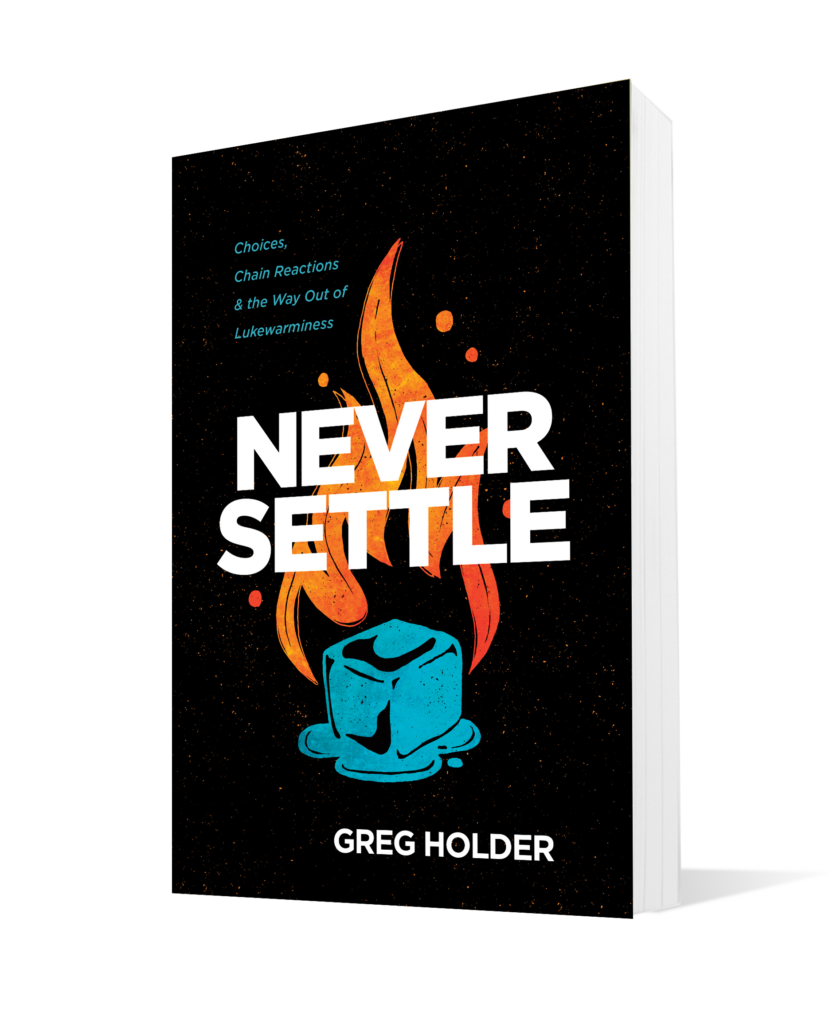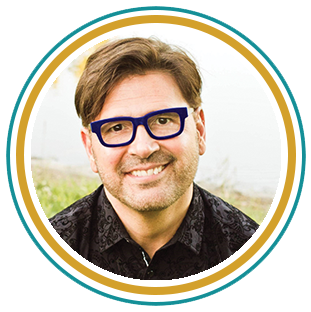We stew in a sour soup of emotions for far too long before coming to God. For some, it is the crazy notion of getting ourselves in a better condition to approach him. (As if our current situation and subsequent reaction will be a shock.) Oftentimes, in these harried moments, we start strategizing what should and will happen next. Before long, we’re moving fast again, forcing our agenda and our solutions into the mix.
Interestingly enough, this can bring some relief in the short term. It’s why we do it. It feels good to be in control of something again. But this isn’t the true way out. Instead, with the decision-making part of your brain, do just that. It’s time for another choice. Even the act of making a decision begins to change our brain chemistry, allowing for better focus, reducing worry, and get this—making the next decision becomes easier. “Research shows that decisiveness in one part of your life can improve your decisiveness in other parts of your life.”[i]
The act of making a decision begins to change our brain chemistry, allowing for better focus, reducing worry, and get this—making the next decision becomes easier.
Tweet
Put this phenomenon to good use. Make a conscious choice to do just that. Know what you’re doing. Notice what you’re doing. When the raft is upended and it’s hard to know the next right thing to do, come back to what we’ve already seen is right.
Hang On to God’s Word
Reading Scripture is one of the most tangible forms for reaching out to God. There is a chain reaction set off by the power of God’s story. Most who call themselves Christians would casually agree. And yet, we don’t interact much with the Bible. As few as 19 percent of churchgoers personally read the Bible daily.[ii] This is still not the time to pile guilt on top of despair. (Does that ever work?) But neither can we ignore this most important act of seeking God.
Two Things To Do as You Start to Read Scripture:
- Start small. By committing to this in small doses (there are many strategies available to you), you have a better chance. Try this once a day (or three times a week, for that matter, just try this) for three weeks, and see if it’s worth it. Don’t expect to do this perfectly—you probably won’t. But do it.
- Watch for the chain reaction. Alex Korb, a neuroscientist at UCLA and author of The Upward Spiral, explains that “the dorsal striatum [the part of your brain where the ruts of your habits are formed] responds to repetition.” He continues: “It doesn’t matter if you want to do something—every single time you do it, it gets further wired into [it].”[iii] Of course, it helps when you want to do a thing and you even see it as something you value greatly.
The point is, new ruts can furrow into our brains. Momentum can build, and the benefits are real. When we habitually braid our thoughts to the word of God, our thoughts become clearer and our emotions run less rampant than before, especially in times of great stress. This becomes a reliable way to hear his voice above the din. Those who have entered the dark and rough waves ahead of us provide another clue to reaching out.
[i] Alex Korb, The Upward Spiral: Using Neuroscience to Reverse the Course of Depression, One Small Change at a Time (Oakland, CA: New Harbinger, 2015), 106.
[ii] Jeremy Weber, “80% of Churchgoers Don’t Read Bible Daily, Survey Says,” Christianity Today, September 7, 2012, https://www.christianitytoday.com/news/2012/september/80-of-churchgoers-dont-read-bible-daily-lifeway-survey.html.
[iii] Korb, Upward Spiral, 124.



